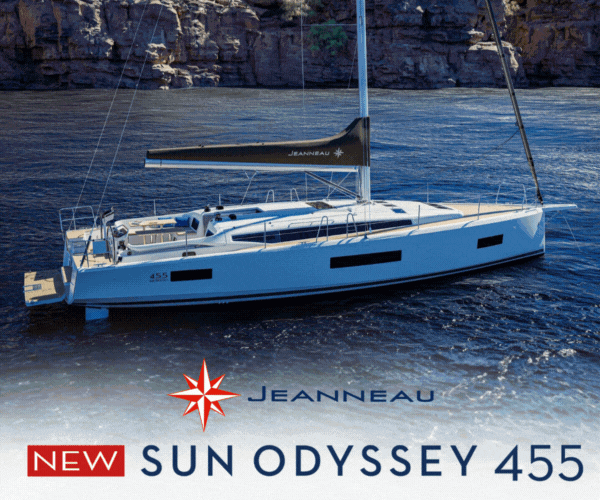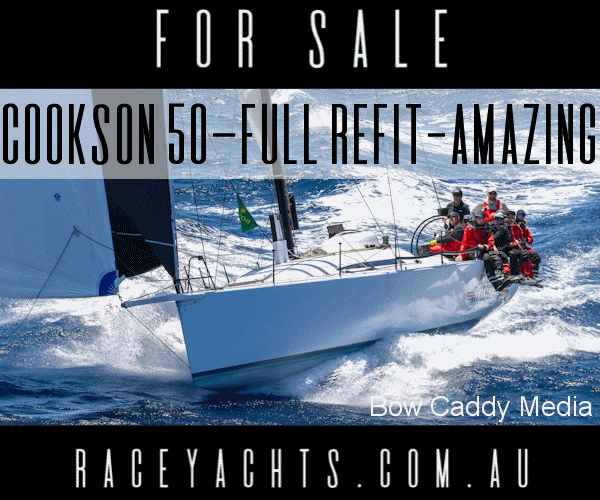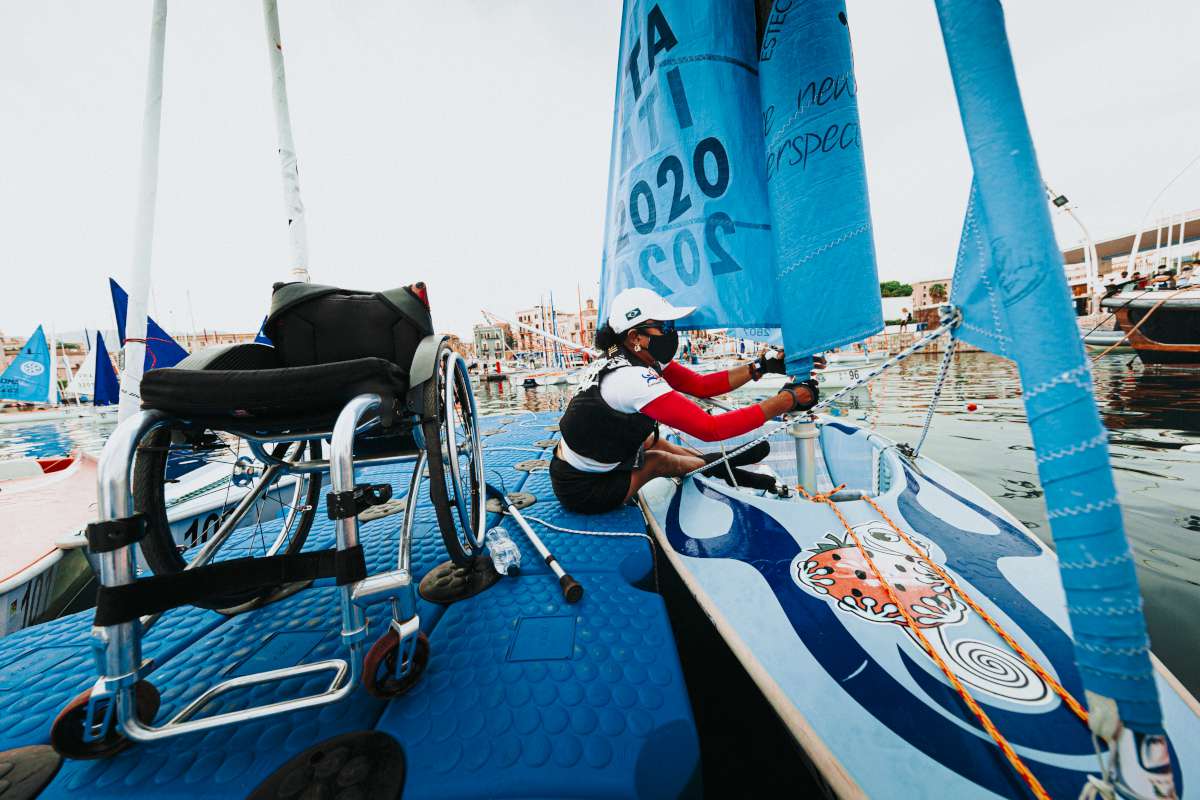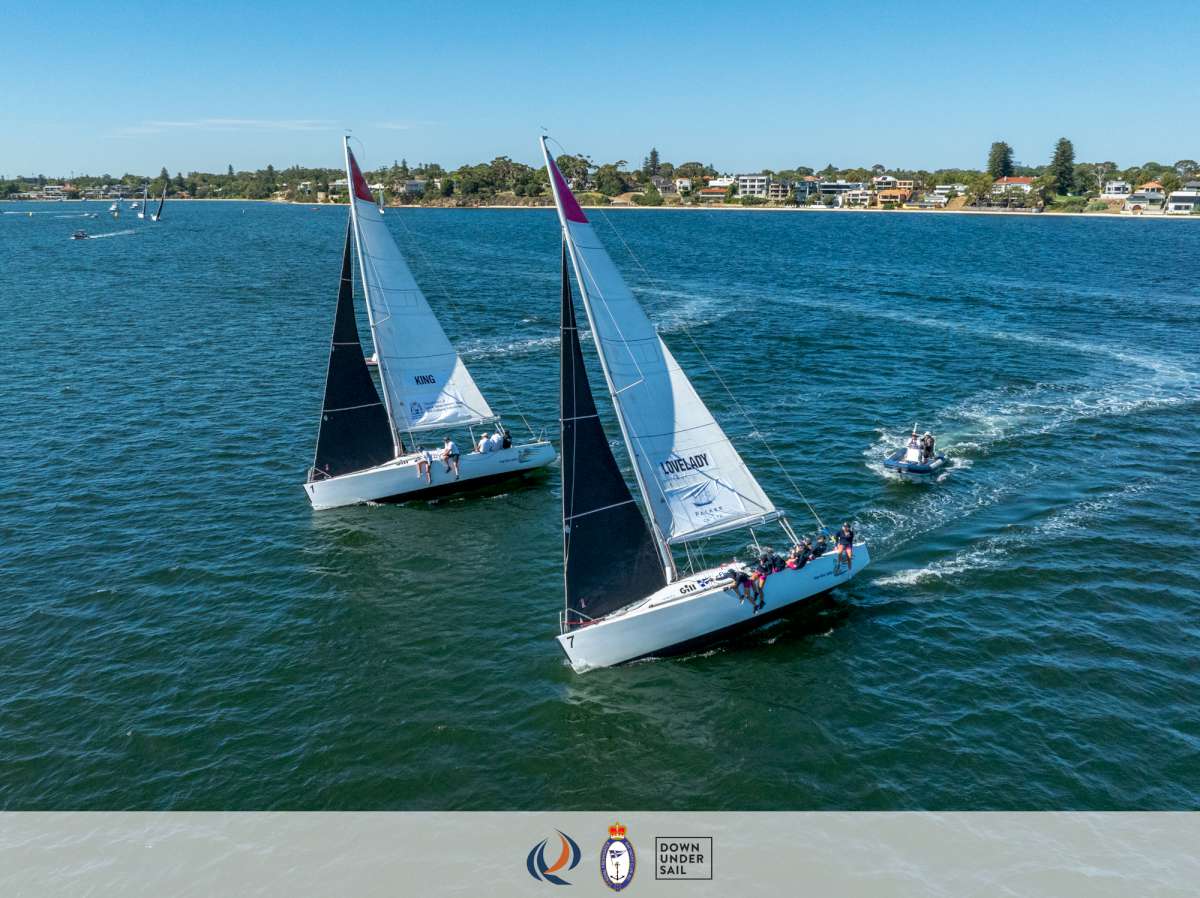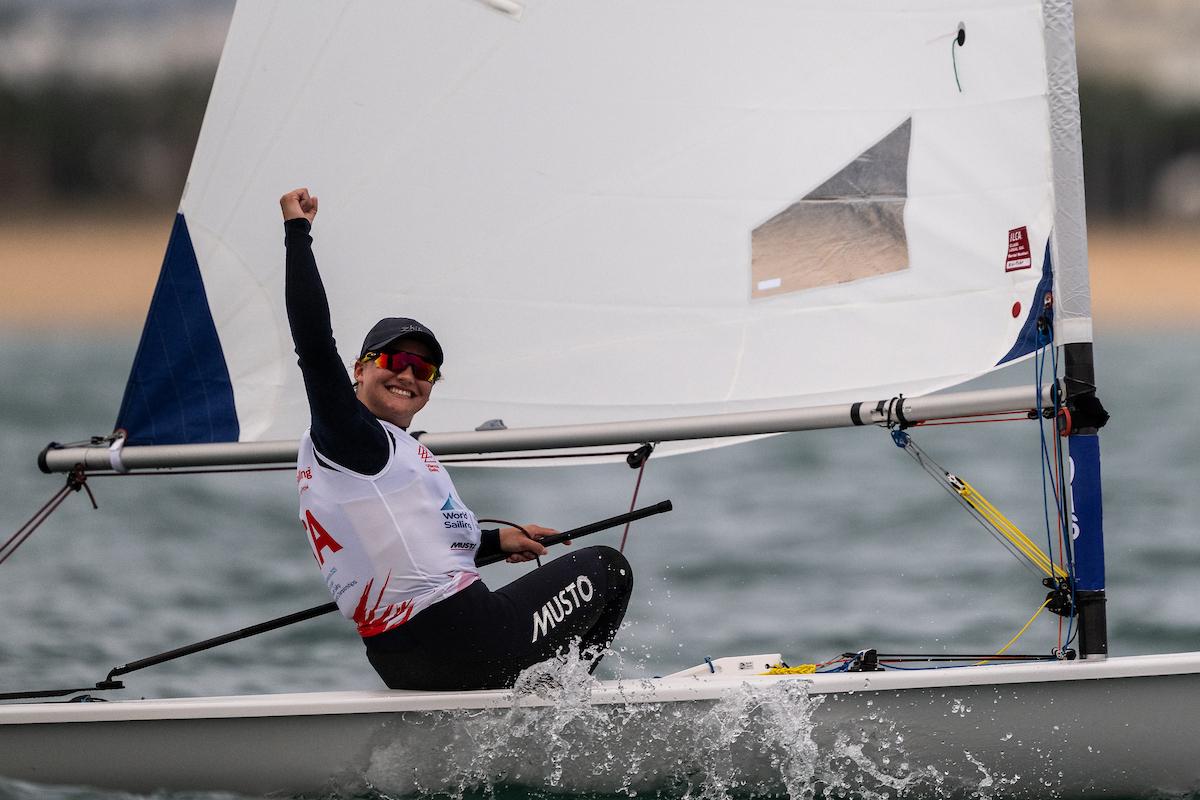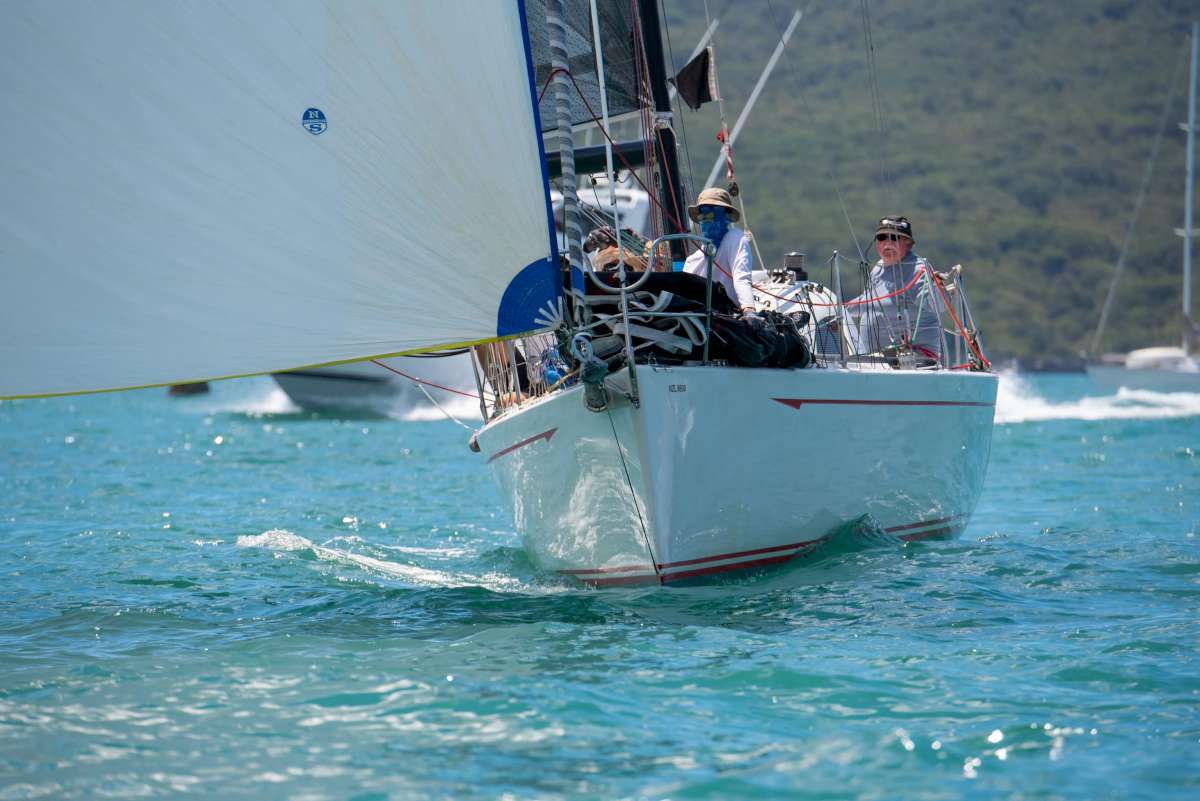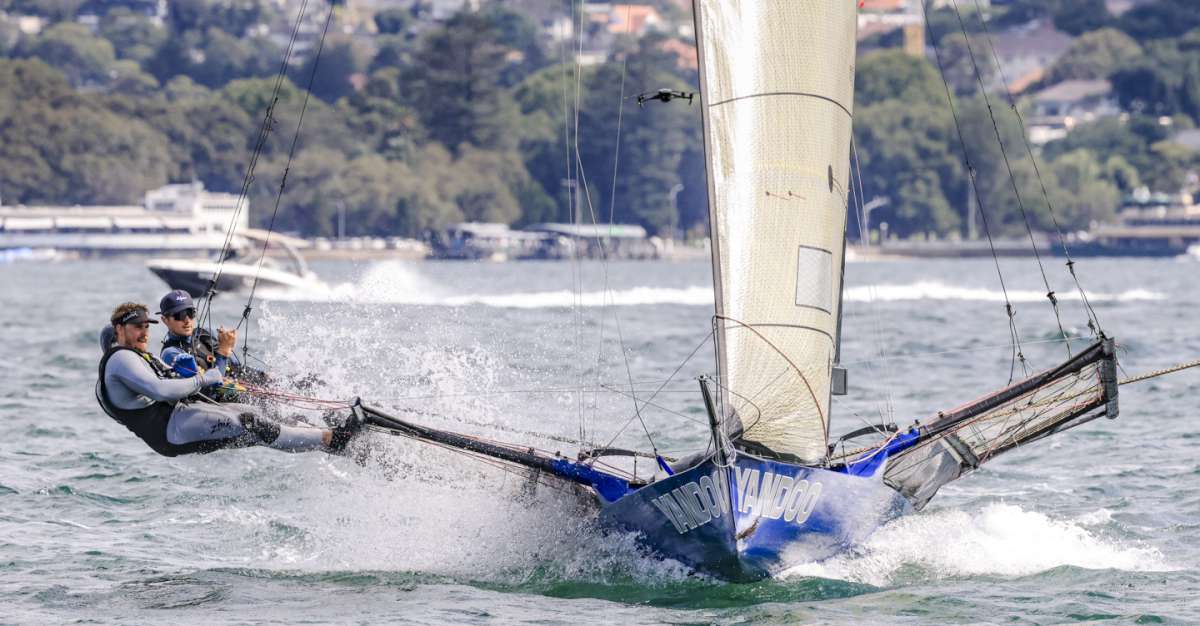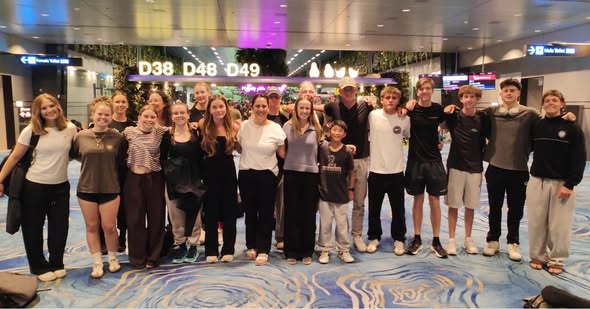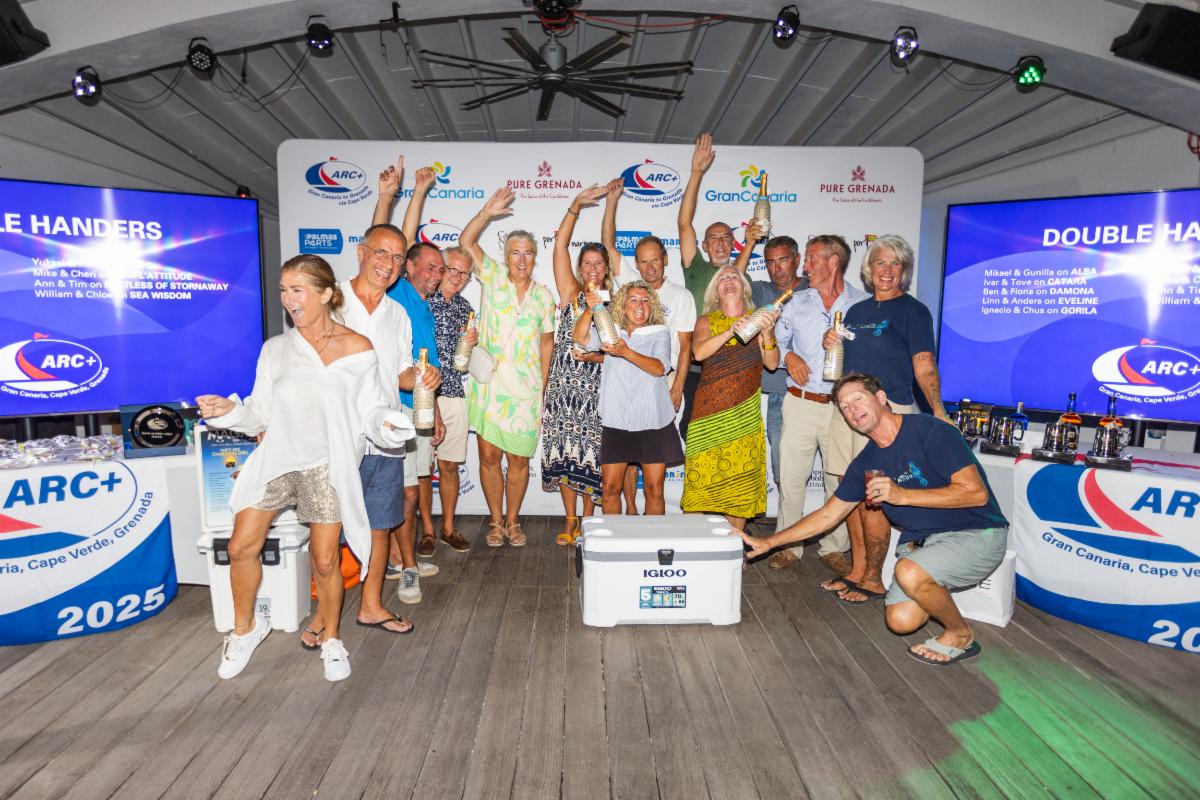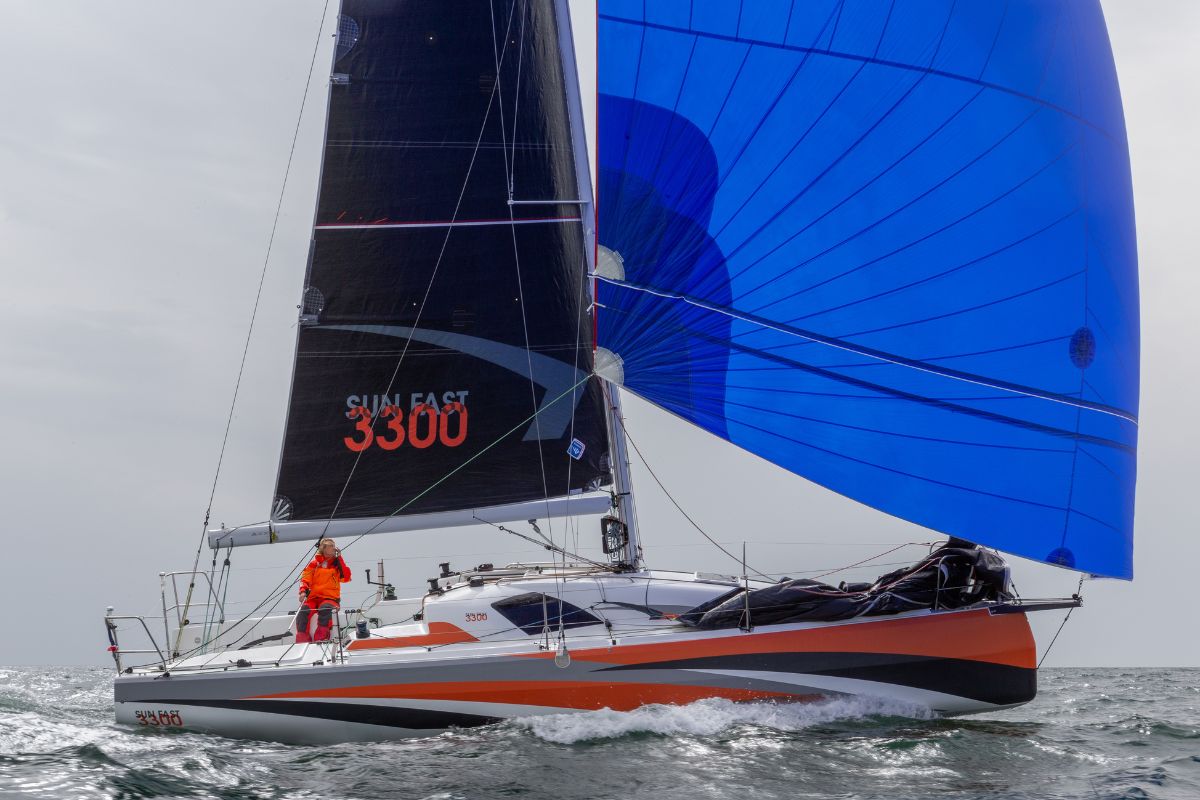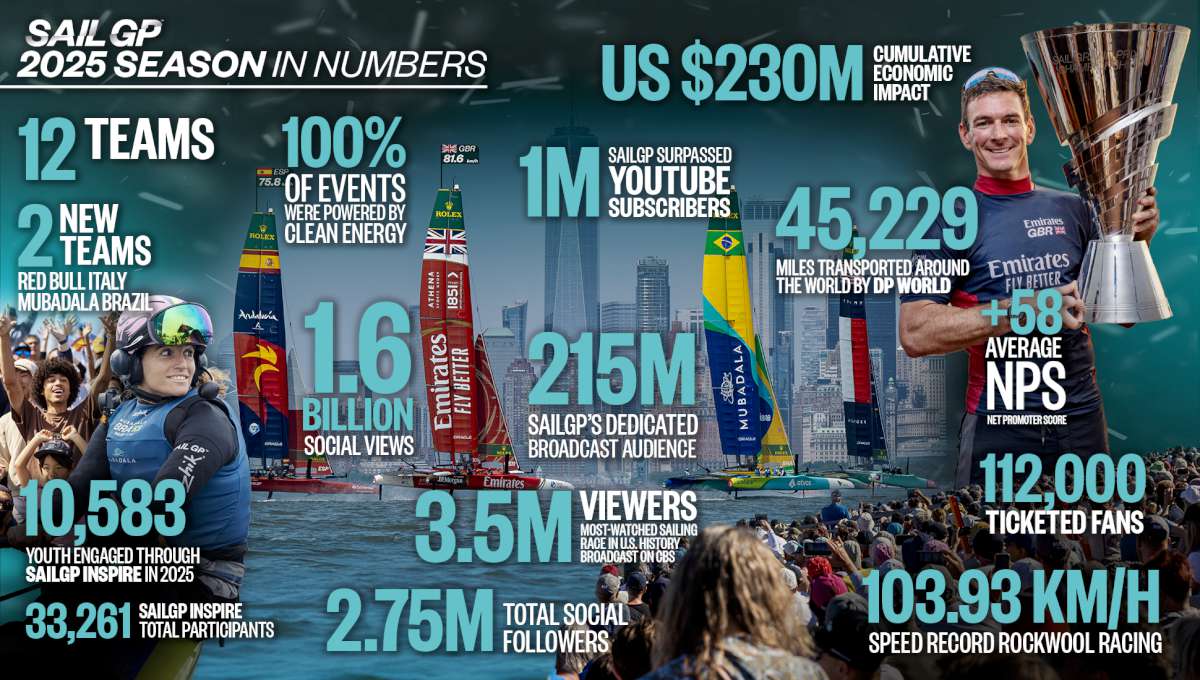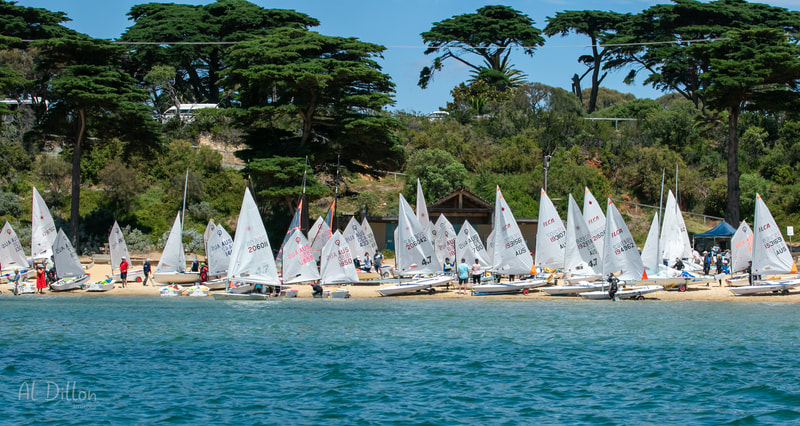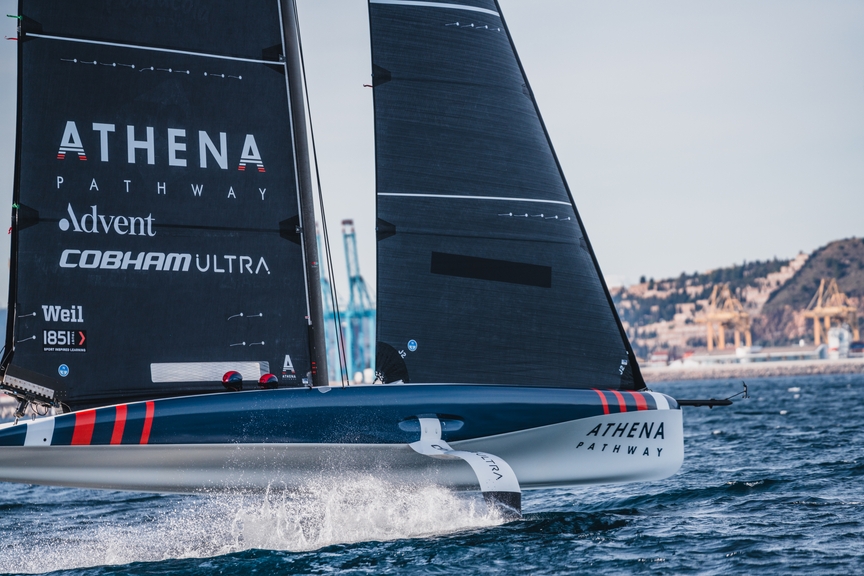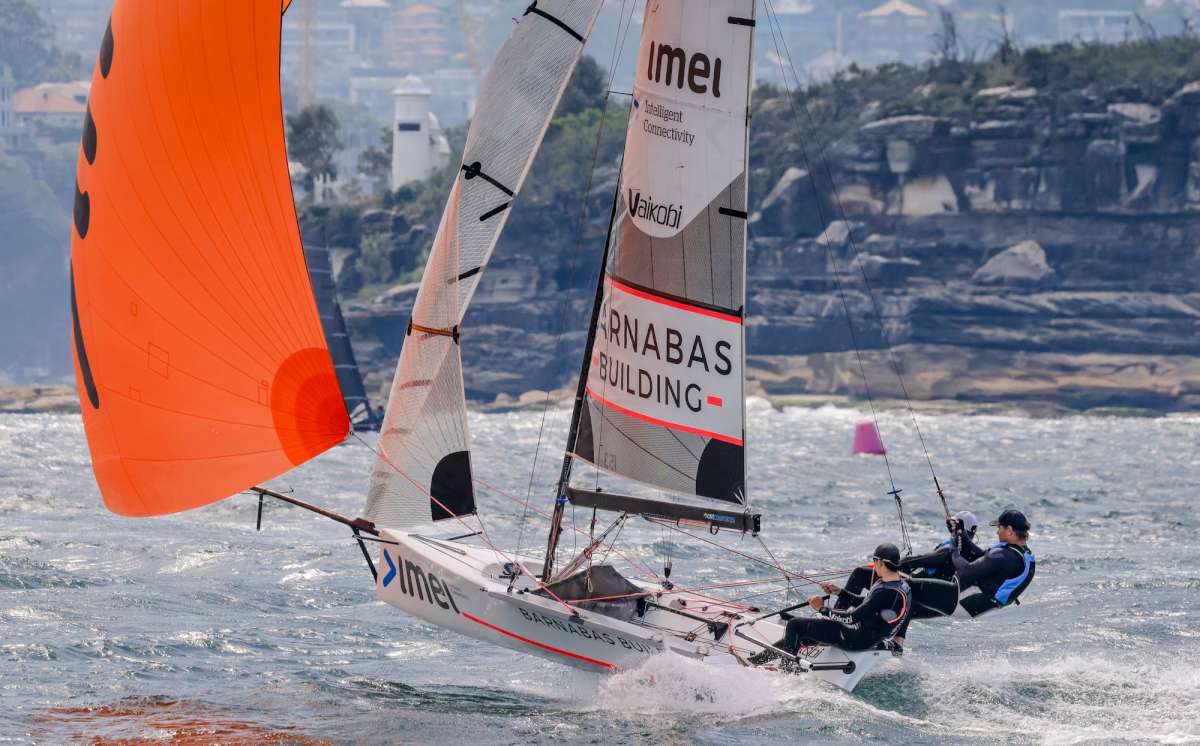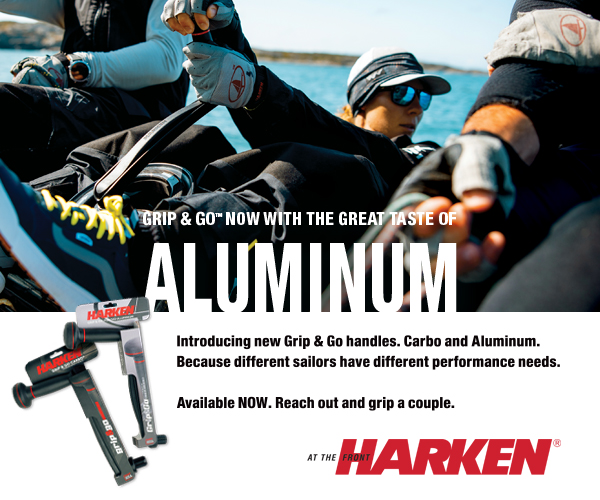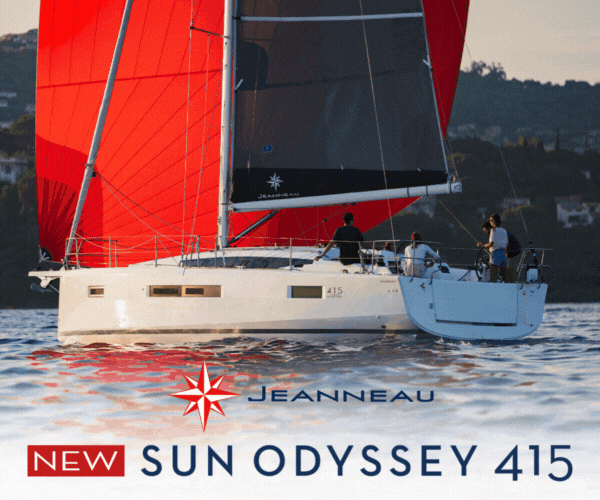This night at last he slept serene, his long tired mind at rest, when on the east the sheer bright star arose that tells of coming dawn, the ship made landfall and came up islandward in the dim of night.
Phorkys, the old sea baron, has a cove here in the realm of Ithaka; two points of high rock, breaking sharply, hunch around it, making a haven from the plunging surf that gales at sea roll shorewards. Deep inside, at mooring range, good ships can ride unmoored.
– Homer: The Odyssey, book twelve. Robert Fitzgerald translation.
Into the light
The wind was gusting all over the place and I was at the tiller, soaked by sheeting, blinding rain with a few hailstones thrown in for good measure. We were in the Ithaka Channel and Mount Nero was somewhere up there on Laranda’s port side, the huge bulk of the mountain now enveloped by a black-and-blue mass of writhing, furious clouds.
The thunder was almost continuous and the clouds appeared lit from explosions deep within its entrails. Earlier on, we had joked that Zeus and Poseidon were sparring up there around the mountain. Zeus, god of the sky and weather, thunder and lightning; and Poseidon, of all things to do with the weather and the sea, especially storms at sea.
Gods hurling thunderbolts and tridents, conjuring monstrous storms and earthquakes. All they needed was for their brother Hades, to join them and we would have the horrors of the Underworld thrown open too.
They had been at it for a couple of hours, I had hoped to be able to put into the small harbour of Euphemia on the western coast of Kefalonia before they really came to blows.
Suddenly, I guess I saw it from the corner of my eye, a bolt of lightning seemed to hit the sea and then jump to wrap itself around the top of Laranda’s mast. Everything disappeared in searing white light and I felt the hissing, crackling crash, inseparable from the discharge of enormous power and flinched.
I fell away, ducking down to escape it. I thought the mast was a gonna while Laranda threw herself around as a boxer might do when riding a punch.
Seconds later when I looked up, I thought I had been blinded by the flash. I could not see anything apart from an opaque white fog and my eyes were stinging as if on fire. I shouted to Keith to tell me what damage had been done and he grabbed me, telling me to close my eyes and sit down.
“Stay there!” he yelled, as I was groping on the cabin decking trying to get my bearings.
“What happened to the mast?” I shouted.
“It’s OK, it’s OK. I can't see any damage from here,” he said. “I can’t see anything broken or loose: nothing flapping around, but you can sure smell burning. What do you want me to do?”
Now I could see shapes in the fog, then the shapes began to come into focus. At least I could see something, blurry, but I could see. I hauled myself up and held onto the grabrail on the cabin-top near the hatch cover and looked up at the mast and rigging. Keith was right, everything looked OK, but boy did I have a screaming headache.
Just before the strike, when the storm had obliterated visibility and thrown a shroud of darkness over everything, I had switched on the navigation lights. Now they were not working and I was about to call Keith when he shouted up to me from the below, “no power down here, nothing working.”
“Try switching all power on and off” I said.
“No, nothing doing here.”
“Nav lights gone, too; so the strike wiped the electrics.”
Cape Decaleo would have been just abeam to port, but there was no chance of seeing it.
A large steamer, probably an inter-island ferry with her lights glowing faintly through the rain and deepening maelstrom, was moving slowly to overtake us on the starboard side. I hoped she had seen us.
I had started the engine a few minutes before the strike when I’d switched on our nav. lights and had it ticking over, sailing only with stays’l and the wind on the starboard quarter. I called Keith again to come and take the helm while I went forward to hand the stays’l. Only then, when the steamer had crossed our bow well ahead, did I alter course for the port of Euphemia. It was there, somewhere.
Hoped for haven
I could neither see the lights of Euphemia, nor the flashing light on the mole, until we were about three cables out; but, even behind the mole, there was chaos. The quay was not full, but there were a number of yachts in port and a guy ran along the quay shouting to me, something about them all having two anchors out.
From his wild gesticulations we assumed he meant they were down at wide angles and he was warning us about fouling cables. We were not welcome to try and berth there, so we decided to forget about the quay and to drop the hook out in the harbour.
I had just put the tiller over when a violent squall swept down from the mountains, lashing us with hailstones. I could barely hold our position under full power.
Astern of us, two yachts began to drag and wrap themselves around each other at the quay and, between the shattering cacophony of thunder and the roar of our engine, we could hear the screams and shouts of the crews as they fought to save their yachts being smashed against the quay.
We had our hands full too, but managed to drop anchor more or less in the middle of the harbour. After about half an hour I was reasonably certain that it was holding. That violent squall did not last long, but the storm itself was trapped by the mountains and it stayed with us.
Keith was in the cockpit and I was just about to go on deck to secure the lashings on the sails when I saw a large caique approaching from around the mole. It was towing two smaller fishing boats into the harbour and heading straight for us.
Our power was still knocked out, so I grabbed a torch and flashed it at him. He saw us and altered to starboard, just at the moment when another squall swept into and across the harbour and the second of the two smaller boats carried away towards us.
Her skipper rushed to the port bow to fend off, but it struck us on our starboard bow. Luckily it did not hit the bowsprit, but the impact pushed our bow round and he sheered off and cleared away. As far as we could see, the damage was only superficial.
Our anchor did hold but, even so, we did not get much sleep that night. In those days Euphemia had scant repair facilities that I knew of and, because of my concern about the electrics, I had kept the engine ticking over throughout the night. I knew, from past experience, how difficult it was to start by hand, especially in an emergency.
Come 0800 hours the wind was still blowing around force 5 straight into the harbour, so I decided to leave, chance the wind in the Ithaka Channel and try for better shelter in Port Polis on Ithaka.
After clearing the headland, I set the the storm jib and, with the engine still just ticking over, the wind took us up the channel.
I put on some power to enter Polis, the ancient port below the site of Ulysses palace but, given the wind strength and direction, it looked as if it would be tricky to anchor safely amongst the other boats in the port. So we turned away towards Fiskardo.
As things turned out, we would probably have done better to stay in Polis.
Realm of Ithaka
We bore away back across the channel, with the wind now on our port quarter and made for Fiskardo on the northern tip of Kefalonia. It did not take long for us to get there and, from off the point, we could see the confusion in the small bay.
Fiskardo is popular with flotilla yachts and they were having a hell of a job of it: some berthed two and three deep. There certainly was not any room for us, so we joined the confusion of yachts trying to anchor off.
Much of the rocky bottom of Fiskardo affords poor holding and it took us some time before we were happy with our position; and, yes, the engine was sill ticking over.
Keith stood anchor watch so that I could grab a few hours sleep. Then I got up and had a go at fiddling with the wiring. To start with, I plucked up courage and switched off the engine. I do not pretend to be much of an electrician, so it was more than a bit of a hit-and-miss job.
I replaced all the fuses, but still nothing worked. I checked all the wiring I could see, but saw no signs of burning. The main switch has positions for using the batteries separately or together and I had been working with the switch at ‘all’ when, for no particular reason, I switched everything off, then on again but to battery two, alone. Suddenly, we had power in the cabin. I switched off again and then back on to ‘all’ and we had power everywhere except at the masthead.
Luck? Yes, mug’s luck! Something had tripped somewhere, but I am a believer in 'if it works, leave it alone'.
Next morning the wind was still blowing, but dying and shifting. There are times, however, when I feel more happy at sea rather than in an anchorage I am unfamiliar with, especially one reckoned to have poor holding. So we left Fiskardo for the better shelter of Tranquil Bay on the island of Levkas. I set the fores’ls after we cleared the point as the wind was a good sailing breeze. By the time we reached Tranquil Bay it was just tickling the wave-tops.
Tranquil Bay is pretty well as good as its name and the best anchorage for visitors to Nidri. We took a couple of days to check things over; the bulbs had blown in the nav. lights and Keith hauled me up to replace them. We had a good rest, dried-out our gear and went ashore for a few meals in ‘Nick The Greeks’ famous restaurant.
Rowing ashore one evening, we were passing a yacht with an elderly couple aboard, Helen and Harry, sitting relaxing in their cockpit and we stopped for a chat about the recent storm.
“I remember when we were struck by lightning” Helen mused.
Harry took a pull at his pipe before saying “we’d always had trouble with our alternator, never did give much of a charge, did it dear?”
“No love, it was a bummer from the start, but you would persist with it.”
“Mmm” Harry grunted, looking for another match, ”but that lightning did the trick. It sizzled down the mast, had a fiddle and a grope around with the electrics and the old alternator worked like a charm from then on.”
“Yes it did, it sure did, but if you’d replaced it when you should have done we wouldn’t have had to wait for the lightning to do the job for you.” Helen grinned.
Phantom bolt
So what had happened up there at the masthead when the lightning struck?
We came to the conclusion that the lightning hit something metal on the mast, perhaps one or other of the forestay fastening points, then probably jumped around amongst the other pieces of metal up there trying to find a direct route into the sea. It did not go via the shrouds because Laranda’s chainplate fixings are well above water level, so it had to be one of the forestays.
In the end we reckoned it must have come down from the metal fitting at the spreaders through the stay to the fitting on the stem-post and, from there, down the metal fixing on the bow then maybe through the bobstay fastening and into the sea.
The only give-away signs were burning of the paint on the eye on the stem-post and a small section of blackened timber between the spreader fitting and the copper collar on the mast: the collar for the gaff jaws. How the hell did that strike not shatter the mast? Plus, we had smelt burning, so why no residual fire?
I have no answer for it. But at least I am here to ponder it. ≈


